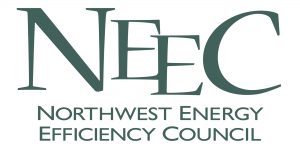In a continued exploration of the Challenges & Opportunities of the Clean Energy Future, we are pleased to publish this guest blog from the founder and former Executive Director of NEEC, Stan Price. We appreciate the comments we’ve received from our members regarding our first post in this series and will be soliciting additional guest posts as part of our ongoing series.
One of the smartest mechanical engineers I worked with was a fellow named Don Casada. Don was a brilliant systems thinker and a pretty good presenter of technical information. He was (still is as far as I know) a Tennessean. When he gave lectures on motor system optimization (riveting stuff), he would sometimes punctuate a critical point by playing banjo music.
Don liked to tell stories and I have long appreciated one real life encounter he had at an industrial plant where he was called in to help diagnose a system performance issue. Don was the type of engineer that liked to get his hands dirty, so he showed up the first day before his appointment with the plant staff and “walked the system” in question. During his walk around, he noticed an oddity in the piping configuration of the system in question. Due to some space constraints, the piping had to make a series of 90-degree bends over a very short distance. He suspected that this was causing a flow issue that was the root of the problem.
Don went to the plant engineer’s office for his appointment and mentioned that he might have the reason for the performance problem – the bad piping configuration. The plant engineer immediately said that this could not be the problem as the piping wasn’t configured that way. Don protested and in response, the plant guy says “look I’ll show you” and rolls out the plan drawings for the system. Don countered that he had just walked the system and saw it with his own eyes. The plant engineer, squinting at the plan, continued to disagree. Cue the banjo.
The important lesson here is not to prioritize plans, and the planning tools behind them, over reality.
The Northwest Power and Conservation Council (Power Council) has over decades issued regional power plans using an ever more sophisticated set of modeling tools and embedded assumptions that populate those tools. Without doubt, the region has benefited from that work. The Power Council and its planning work was birthed in an era where power generation decisions were dominated by traditional straight-line thinking that led to near catastrophic financial decisions. Energy efficiency was a little known and little trusted “resource”.
To make energy efficiency real, the Power Council needed to define what it was (EEMs), how it performed (deemed savings), and how long it hung around (useful life). And so was born, the Power Council energy efficiency worksheets. As a planning tool, they served the need of the day. The region could plan and account for the average megawatts of energy efficiency resources. It was sufficient in its time and place.
Times have changed.
A 1980’s mindset no longer meets the challenges facing the utility system(s), the needs of end use customers, or the climate. As Kerry Meade’s blog post points out, the now antiquated thinking about energy efficiency as a resource is lacking in a number of key areas. First, it does not account for energy efficiency in time and place. The value of the “average megawatt” is virtually non-existent. Kerry’s plea that we pivot our thinking to measuring and valuing energy efficiency dynamically at the meter (or groups of meters) is critical for meeting the 21st century challenges to our energy system. Yes, this will be difficult to achieve and our means and methods to do so will need to improve over time. It won’t have the elegant simplicity of a workbook computation of savings, but I would remind all that the system of deemed savings and useful life has gone through these same iterations of refinement and improvement.
Most importantly, the energy efficiency planning tools currently in place are just that – a modeled simplification of the complex reality of energy use. We have always known that energy use, be it residential, commercial, industrial or agricultural, is a marbled cake – energy using equipment, most often dynamically interactive in a system, and operated to good or ill effect respective to achieving functional outcomes. Antiquated planning tools and assumptions just aren’t up to this task. A meter-based savings approach is far better suited for this.
As the Power Council works to complete its newest 5-year Plan, the rumblings are that energy efficiency is pitted against (and losing to) new renewable energy resources. This day has been coming. Clinging to outdated planning models and assumptions leads to this head scratching outcome that somehow our energy system is better off building centralized generation resources to serve inefficient loads in the built environment. Almost ironic isn’t it?
Cue the banjo.
